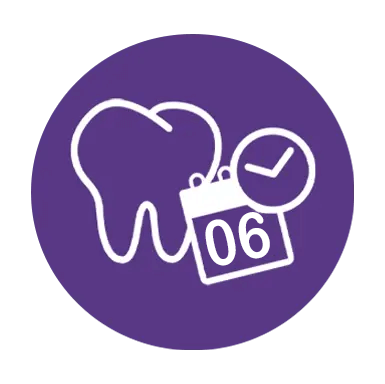TMJ
TMJ at Melbourne
The temporomandibular (tem-puh-roe-man-DIB-u-lur) joint (TMJ) acts like a sliding hinge, connecting your jawbone to your skull. You have one joint on each side of your jaw. TMJ disorders — a type of temporomandibular disorder or TMD — can cause pain in your jaw joint and in the muscles that control jaw movement.
What is TMJ Disorder?

Unfortunately, TMJ syndrome is a disorder in which one experiences chronic or spastic pain in the bones, muscles and even teeth in this area. Ear pain, headache, jaw pain and even a clicking sound when chewing or talking are all symptoms that may accompany the disorder.
Fortunately, our dental professionals in Melbourne are trained in diagnosing and treating TMJ disorder, and are ready to assist you with treatment so you get relief today.
What is TMJ Disorder?
TMJ is short for temporomandibular joint, and is the area where the bones of the jaw connect with the skull. When referring to TMJ, the entire area involved includes the lower jaw (mandible), the temporal bone, which is the part of the skull that connects to the jawbone, the cheekbone, and all the muscles and tendons connected to the area. TMJ disorders can lead to TMD, or temporomandibular dysfunction.
Unfortunately, TMJ syndrome is a disorder in which one experiences chronic or spastic pain in the bones, muscles and even teeth in this area. Ear pain, headache, jaw pain and even a clicking sound when chewing or talking are all symptoms that may accompany the disorder.
Fortunately, our dental professionals in Melbourne are trained in diagnosing and treating TMJ disorder, and are ready to assist you with treatment so you get relief today.

Symptoms of TMJ Disorder
TMJ disorder is extensive and can involve muscles, bones, tendons and teeth. Pain may be associated with the mouth and jaw area or can extend from the head into the shoulders and neck. But symptoms are not limited to pain.
Because these bones and muscles are located around the facial and sinus areas, other problems like dizziness and ear ringing (or tinnitus) may be symptoms. Often, the pain and discomfort stem from misalignment or how the teeth fit together. If not treated, the symptoms and pain can worsen and lead to more complicated dental issues like cracked or loose teeth.
But proper treatment can help spare you of future problems and ultimately save you money. While pain is the main symptom associated with this disorder, a number of symptoms could also indicate TMJ disorder, including:
Dizziness
Headache
Facial swelling
Pain in jawbone
Trouble chewing
Ringing in the ear
Earaches or ear pain
Locking of the jaw (or jaw joint)
Pain in temple area of the head
Consistent popping sound in ear(s)
Clicking sound when moving the jaw
A sudden misplaced feeling of jaw and teeth
Pain and/or stiffness in muscles around the jaw
Grating sound that accompanies certain jaw movement
Each of these symptoms may be eased with ice packs or over-the-counter pain killers, but if they are recurring, it may be best to treat the root of the problem, if possible. Treatment can ease pain and erase the need for continual medications, which may have side effects if taken too often.
What Causes TMJ Disorder?
Any exact cause is unknown because each person is different. Muscle spasms, misalignment or degradation to the cushion of the joint can all be causes of TMJ pain. Any of these can be the result of a number of causes such as:
Stress
Whiplash
Teeth clenching
Arthritis in the joint
Bruxism or grinding of the teeth
Injury or blow to the head or face
Poor jaw alignment that interferes with chewing
In any case, if this ball and socket joint do not line up properly, especially when eating or talking, it can cause inflammation leading to chronic pain and the other symptoms associated with it.
How We Can Help
When you come to us for an evaluation and examination, we can help diagnose TMJ disorders and find the best treatment path for you. Our caring dental professionals are trained and experienced with TMJ and are ready to assist you. Upon your first visit, we will take the proper steps to quickly identify the source of your discomfort using the following:
A full set of dental x-rays
Observe and measure jaw position
Possible MRI referral to reveal any joint issues
Possible 3D imaging to reveal issues with the jaw and bite
A full evaluation to determine your health history and problems
Some issues may also be resolved through adjustments to dental crowns or bridges if they are the source of the problem. And still, others may benefit from a Cosmetic Injectable to relax the nerves and muscles of the joint for immediate relief. If this is the case, the problem could be fixed, eliminating the need for future medications and treatments.
Our Happy Patient
Treatment for TMJ Disorder
Treatment varies by each individual case, which is why our professionals will do a full evaluation to determine the cause of your TMD. Once we learn what is behind the discomfort, we will proceed with treatment, which may include:
A mouth appliance to reduce bruxism
Recommend methods for stress reduction
Reshaping of teeth to ensure a comfortable bite
Prescription pain medication to relax the muscles
Over the counter pain medication to reduce inflammation
No matter what the cause, your comfort is our priority. A misaligned jaw and teeth that do not fit together properly can cause dental problems in the future. Some problems include wearing down of the tooth enamel, cavities and loose teeth. But we will do everything we can to help relieve your pain, which may even prevent future dental problems and help you find relief.
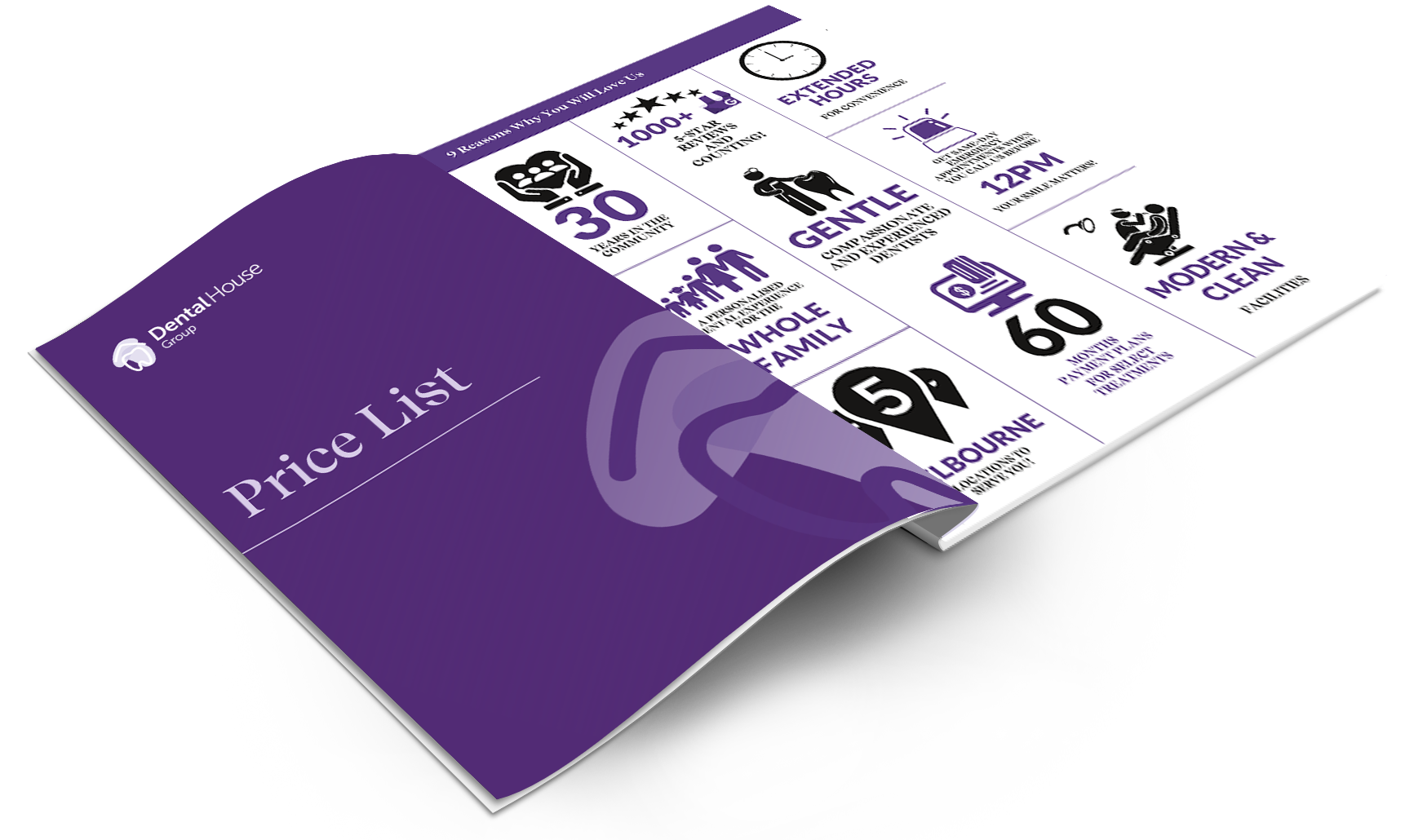
Download Price List
While we agree that you can’t put a price on good health (especially when it comes to your teeth), we understand the reality of family budgets. That’s why we offer flexible treatment options and family-affordable pricing. You might say the only thing average about Dental House is our prices.
Our Happy Patient
Call Today and Make an Appointment
Our gentle caring and compassionate dentists are ready to help you today. Don’t let dental problems get worse or continue. If TMJ disorder continues untreated, it can lead to more pain and a need for more extensive work to restore your jaw and teeth. But the right treatment can help you achieve a more natural feel, reduced pain and less stress. Call today and schedule an appointment for a full evaluation and exam, and let us help bring you relief.
Disclaimer: The material posted is for informational purposes only and is not intended to substitute for professional medical advice, diagnosis or treatment. Results vary with each patient. Any dental procedure carries risks and benefits. If you have any specific questions about any dental and/or medical matter, you should consult your dentist, physician or other professional healthcare providers.
Your Dental House Journey

Your Dental House Journey

Examination and Treatment Planning

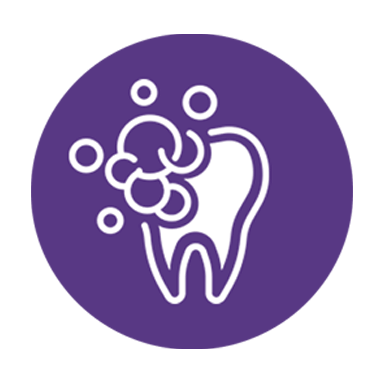
Hygiene Department

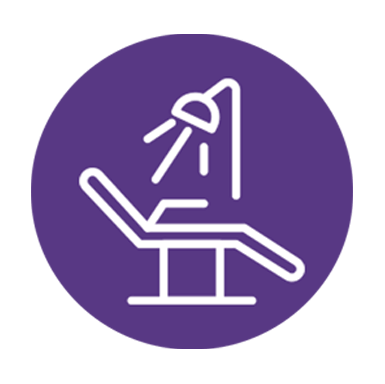
Clinical Treatment

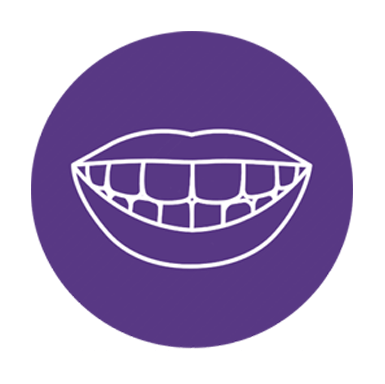
Functional Restorative

